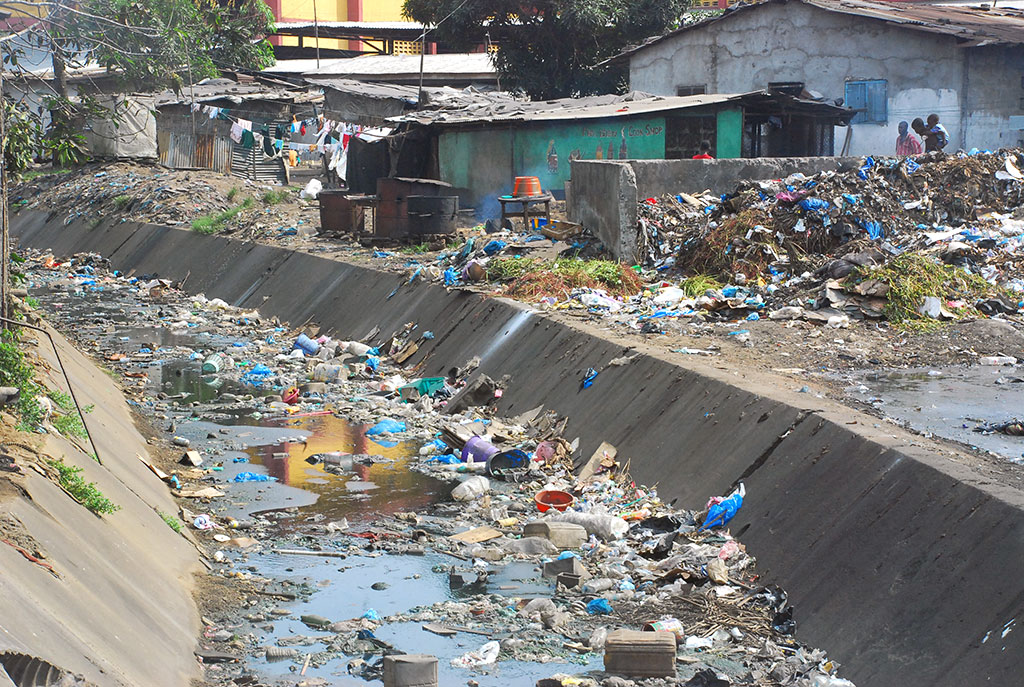Simply defined, Hazardous waste is any undesired material having properties that make it dangerous or capable of having a harmful effect on human health or the environment at large. Thus, when a substance becomes dangerous to the safety of occupants in an environment, it is described as a hazardous material.
Being able to identify the type of waste we deal with in Liberia first requires an understanding of the characteristics these waste possess. The Environmental Protection Agency (EPA) of Liberia is responsible for the categorization of hazardous wastes and their characterizations are as:
- Ignitability- the ability to cause a fire.
- Corrosivity-capable of becoming rusty.
- Reactivity-a position of being able to react with other substances.
- Toxicity-being being poisonous.
I believe it is important for the common person to be able to tell what is a hazardous waste. In Liberia, the average person has no idea what these wastes are and this leads to the improper disposal of them into communities. As a result, the physical quality of Liberia, namely its air, water, and soil, have been significantly impacted for the worse.
When hazardous wastes are exposed to the open air, littered on the land or allowed to seep into water bodies, strange diseases are introduced and unfortunately, there is no procedure that outlines clearly how to dispose of waste in Monrovia, not to talk of Liberia at large. Human exposure to these wastes through methods such as inhalation and contact could result in sicknesses like diarrhea, malaria, typhoid, skin rashes, etcetera.
In order to solve these everyday problems of improper hazardous waste disposal, I firstly believe that proper education of the masses on the types of hazardous wastes, as well as the best ways to dispose of them, is mandatory. In addition to that, institutional frameworks that will serve as a guideline to the implementation of the new mandates need to be put into place. An example of this would be the introduction of a law that mandates a person be fined for polluting the environment. There are a few agencies in existence who are supposed to play essential roles in Liberia Solid Waste sector but many negate vitally important and impactful responsibilities and simply pass on their responsibilities to the Monrovia City Corporation (MCC) thereby virtually leaving the management and development of the entire Hazardous Waste sector in its hands.
The Monrovia City Corporation (MCC), along with the Environmental Protection Agency (EPA) and Division of Environmental Health and Safety at the Ministry of Health (MOH), should be able to efficiently work together to properly manage the country’s waste and create awareness on the impact these wastes can create the ecosystem.
Another glaring flaw in the country’s waste management system is the newly birthed and still growing recycling industry. The purchase of metals and hard plastic scraps have attracted the recycling industry and hopefully, this leads to a speedy implementation of proper recycling methods around the country. However, there are no restrictions nor rules on the disposal of used oil, fuel, electronics, and computers.
Then, there is the situation of the inadequate solid waste management system in the country. A staggeringly huge percentage of all household bio-hazardous and commercial wastes end up in unsanitary dumps, wetlands, vacant lots, or even in drainage systems causing clogging issues. This practice undermines sustainable community development, increases the morbidity rate and creates issues relating to public health, hygiene, behavior, and livelihood.
As the government has started the “Weah For Clean City” campaign, I’m convinced that the proper segregation, collection, treatment, and disposal of all these various types of wastes should be high on their agenda. If this is prioritized, the probability of having to deal with illnesses like Ebola, diarrhea, malaria and so many other diseases will be drastically reduced. For example, Zimbabwe is soon to be declared a malaria-free country; and this is a result of an overhaul of their waste management processes. This just goes to show that hazardous waste should be managed, collected, treated and disposed of in a rightful manner or else the entire ecosystem will be unsafe, as will our lives.
Authored by: Anthonette Quayee


sleeplessinmonrovia, thank you for your blog post.Really thank you! Awesome.